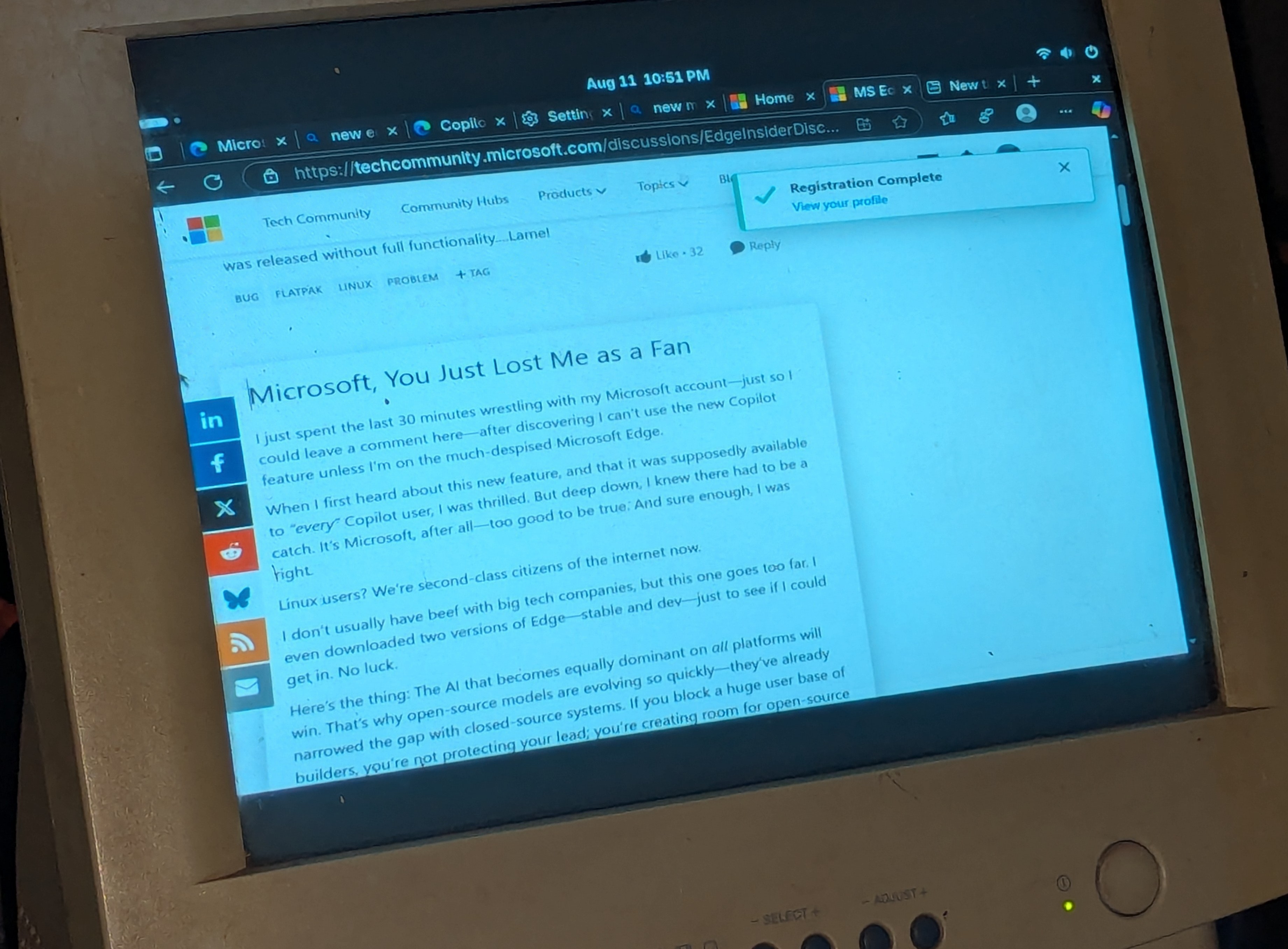Microsoft’s Copilot Blunder: Why Locking Out Linux Users is a Gift to Open Source

Microsoft, You Just Lost Me as a Fan
I just spent the last 30 minutes wrestling with my Microsoft account—just so I could leave a comment here—after discovering I can’t use the new Copilot feature unless I’m on the much-despised Microsoft Edge.
When I first heard about this new feature, and that it was supposedly available to “every” Copilot user, I was thrilled. But deep down, I knew there had to be a catch. It’s Microsoft, after all—too good to be true. And sure enough, I was right.
Linux users? We’re second-class citizens of the internet now.
I don’t usually have beef with big tech companies, but this one goes too far. I even downloaded two versions of Edge—stable and dev—just to see if I could get in. No luck.
Here’s the thing: The AI that becomes equally dominant on all platforms will win. That’s why open-source models are evolving so quickly—they’ve already narrowed the gap with closed-source systems. If you block a huge user base of builders, you’re not protecting your lead; you’re creating room for open-source to leapfrog you.
Microsoft needs to remember: sometimes you have to sacrifice a little control to win the masses. That’s the way forward for learning, creating, and thriving in the AI community. Don’t follow the path of those giant internet companies that collapsed because they forgot to please their users.
I’ve actually liked more of Microsoft’s services than most people I know. And let’s not forget—you won the PC wars against Apple and IBM by opening the doors to everyone.
So yes, I’ll use AI to clean up this rant (ironically enough) and maybe even make it my first blog post. But here’s the takeaway: Microsoft, you might have gained some Linux users today, but you’ve definitely lost me as a fan.
Why This Matters Strategically
Lock-in looks good on a quarterly dashboard. It looks terrible over a decade when ecosystems decide the winners. Copilot should be the layer that sits everywhere—browser, terminal, editor, OS shell—frictionless. Instead, every restriction is an API call the open-source community now feels morally justified to replicate.
The Open Source Acceleration Loop
- BigCo imposes friction.
- Builders get annoyed.
- Open-source forks velocity.
- Distribution equalizes via lightweight wrappers + APIs.
- Talent + attention shift.
We’ve seen this loop with databases, with container orchestration, with LLM inference, and now with AI UX assistants.
What Microsoft Should Have Done
- Ship everywhere first, then optimize Edge.
- Treat Linux as a power-user amplifier, not an edge case.
- Offer progressive capability tiers instead of binary access.
- Publish a roadmap + constraints doc to earn trust.
What Happens Next
Open source will:
- Re-implement the feature fast.
- Wrap it into VS Code, Neovim, Zed, even terminals.
- Ship it via a browser extension that works in Firefox + Chromium forks.
And users will quietly migrate their default mental model of AI assistance away from proprietary walled contexts.
Edge isn’t the future of distribution. Ubiquity is.
If you want more blunt takes like this—on AI strategy, product building, and the economics of open ecosystems—stick around.